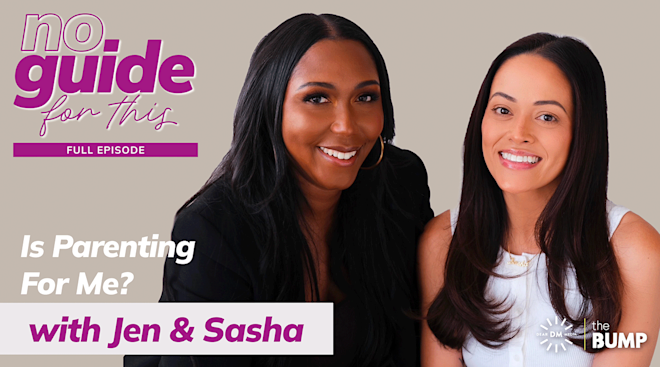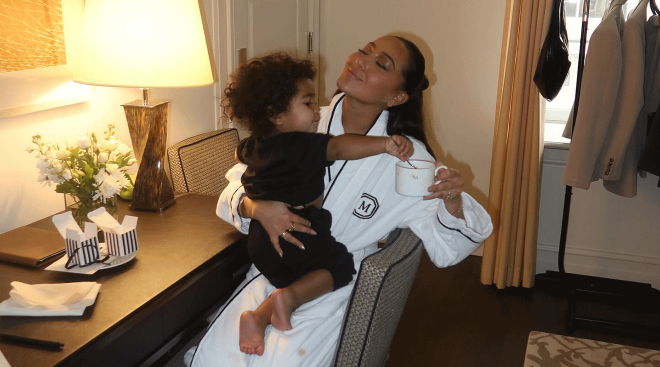How to Deal With Your Crazy-Mom Anger
The following story, “How To Deal With Your Crazy-Mom Anger” by Alyssa Shelasky was originally published on Boomdash.
I used to consider myself a pretty laidback person. Okay, yes, I’m stubborn and can hold a grudge (as my loving husband can attest) but overall, I like to keep things chill. Then, I had kids and my patience and easy-going demeanor was put to the test. Staying even-keeled when your newborn baby has been up for 20 hours shrieking or you’ve asked your toddler 15 times to put on her damn shoes and then she hurls one at your head can reeealllly work your last nerve.
In this age of millennial thinking, I try to parent from a place of mindfulness and self-awareness that I’m sure you’re familiar with: getting down at their level, really listening, discussing instead of commanding.
But I have a limit to these diplomatic negotiations. I’ve snapped and yelled—many, many times—at my kids. Right afterward, a burning wave of #momguilt washes over me.
I’m realistic enough to know that losing your patience is part of parenting. But I’d like to minimize those fiery, angry outbursts and let go of that guilt, which will inevitably resurface over something totally minor—like a coat left on the coach (not on the hook!!!). That’s when you know you need a mental reset. Welcome to your new anger-management plan.
“When we lose it, we are essentially emotionally hijacked, no longer in control of our behavior,” says Shonda Moralis, a mother, psychotherapist, mindfulness coach and author of Breathe Mama Breathe. “Our bodies go into a fight-or-flight reaction. The part of our brain that’s responsible for seeing the big picture literally shuts down as the emotional side of our brain takes over.” That’s when it’s super critical to reboot your internal hard drive and regain perspective, she says. It sounds really basic, but inhaling and exhaling can truly help.
It’s a trick that works for Brooklyn, NY, mom Rebecca Sinn. “I have the most wonderful child, but he’s a boy, who asks a ton of questions, wants attention most of the time, and never, ever, ever sits still,” she says of her 3-year-old son. “I’m talking laps around the restaurant, pulling everything off the grocery shelves, playing with everyone’s ball at the park.” When her anger boils over, she takes three deep breaths immediately, which she says regulates everything. And the results sometimes rub off on her son. “He knows when I do this I’m mad, and he often breathes deep with me!” Some apps to help guide you: Breathe2Relax, Calm, and Inner Balance.
When you feel like a wind-up toy spinning out of control, change your physical stance. Moralis practices what she calls the “SNAP” method. “You Stop, Notice your body sensations—drop your shoulders, soften your jaw—Accept how it is right now, and Pay attention to your breath,” she explains. “This can be done alone or in the midst of chaos.” Sarah Daniel, a mom to three-year-old twins in Toronto, Canada, uses a similar move. “I stand in that Superwoman pose, which is supposed to help lower your cortisol,” she says of easing a stress-released hormone surge. “You only need to do it for two minutes. I know it’s kinda ridiculous, but I find it works. I do it before they wake up, but also when they are melting down over a toy. I just stand there in between them like Linda Carter. It also often stops them because they ask me what I’m doing.”
Tuning into some alternative therapy can also clear your emotional headspace, says Alyssa Citarella, an intuitive change agent and reiki practitioner with a 10-year-old and 6-year-old. “I’m a big fan of hemi-sync recordings,” she says of calming audio tracks that work to connect the right and left hemispheres of your brain to put you in a more balanced state. “I have a couple of short recordings on my phone that I can listen to when I need a shift.” A low-tech alternative you can do without earbuds and on the playground: “I go through a quick mental gratitude list, of all the things I’m grateful for, however small they may be: like I’m grateful for sunshine, running water, for music,” says Citarella. “I find spending a few minutes focusing on positive thoughts makes a big difference in my mood.”
Of all these strategies, I have found the swiftest and most effective is admitting that I screwed up. “We need to offer ourselves some compassion or we continue berating ourselves and remain stuck in shame, which is counterproductive to change,” says Moralis. “Instead, identify where you got off-track, how to handle it better next time, and then move on to repairing with your child.” And that repairing, she says, can be as simple as a long hug and apology. It’s a role-reversal that can be tough at first (especially if your parents didn’t display such humble behavior during your own childhood, ahem). Daniel, however, regularly offers up mea culpas to her kids. “I just tell them I’m sorry for losing my temper, explain that I’m frustrated because of XYZ, and I immediately feel better,” she says. “It’s completely obvious, but really helps lessen my guilt.”
By apologizing, you’ll also teach your little ones important life skills. “Our children learn through example that if we try our best, take responsibility for our mistakes and learn from them, and communicate with sincerity, relationships flourish,” says Moralis. And that’s something we can all relate to. “Despite how it looks from the outside, everyone experiences challenges and does not have it together all of the time,” she emphasizes. In other words: Accept the fact that you’re not 100 percent perfect, and you don’t need to be to raise your kids right. “Sometimes good parenting is great—it is enough,” says Moralis.
__You Might Also Like: __ The Cocktail Every Mother Deserves 5 Ways To Get 15 Minutes To Yourself THIS Is How To Vacation With Kids
Navigate forward to interact with the calendar and select a date. Press the question mark key to get the keyboard shortcuts for changing dates.





















































